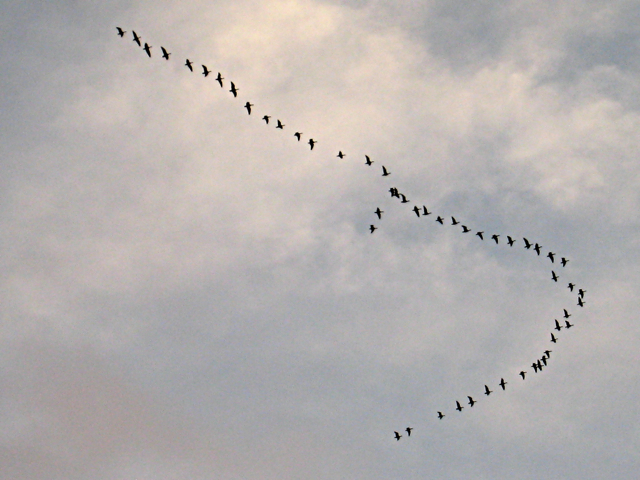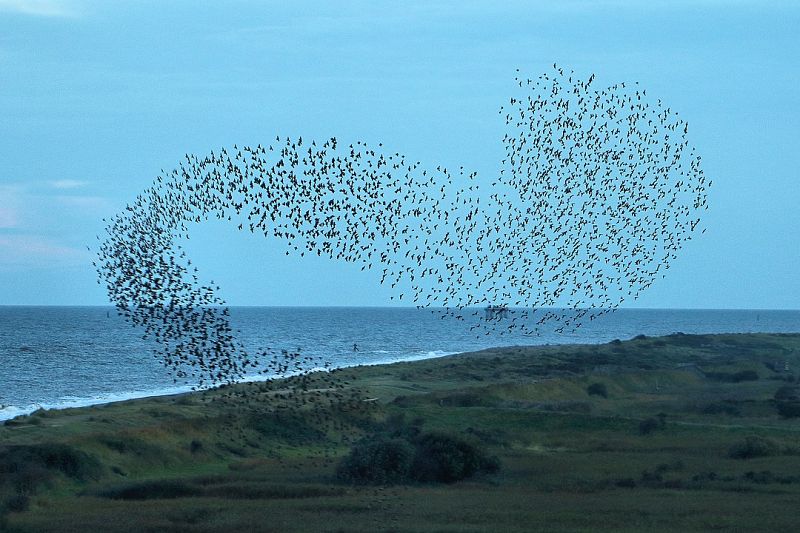18 June 2020
Posted by Jack Thacker

Collective Nouns for Young Writers
Earlier in the year, I was invited to run a couple of workshops for Lighthouse Young Writers, a regular series of workshops hosted at Lighthouse for local children and young adults aged between 11 and 18, co-facilitated by writers Lucy Pearce and Tabitha Hayward.
Thanks to Lighthouse, ArtfulScribe, and Tabby and Lucy, the workshop series has been proceeding remotely via Zoom for the duration of the closure. And so, with my workshops scheduled for the 13th June, I was delighted that I was able to go ahead and deliver them as planned, albeit remotely.
One of the things I’ve missed most during this period of lockdown has been the feeling of being part of a collective – the buzz that comes from participating in something as a group, an audience, or a crowd. So, when it came to the workshops for Lighthouse Young Writers, I focussed on the idea of collectives, both human and animal.
We began with the collective nouns for birds, which are almost as evocative as birds themselves in their unlikeliness and their variety. These are a few of my favourites: a wedge of geese, a siege of herons, an unkindness of ravens, a committee of turns.
These examples – and all the birds we looked at during the session – can all be found in Poole Harbour. I’ve been thinking a lot about the parallels between the migratory habits and habitats of the bird life in the harbour and the transient nature of collective experience in theatres and arts venues – and Lighthouse in particular. It was with such comparisons in mind that I encouraged the attendees of the workshops to come up with their own collective nouns for different groups of people – musicians, theatregoers, even writers.
As the Dorset writer Sylvia Townsend Warner puts it, ‘language is a thing which can only be possessed by those who possess it in common.’ In our divided times (with all the separations that word entails) language can help us feel part of something bigger than ourselves, even if we can only gather in large groups virtually. It was great to connect with these talented young writers, who I would describe numerously as a flight (doves), a storytelling (crows), or a murmuration (starlings).
To prove my point, here’s an example of one of their poems.
A Slurp of Yellow-Bellied Sapsuckers
As footsteps shower
The gravelled ground,
A quarrel of sparrows
Look around.
A slurp, in my
Saddened fear,
Of yellow-bellied
Sapsuckers appear.
They cock their heads
At my errands,
While my gaze skirts past
A siege of herons –
They call their
Scratchy mews,
A discord of
Sung blues.
Who stand stock still,
Looking down,
Battling for fish
With a nearby crown
A well of eyes,
Of tears a pail,
A pocket of memories,
Of whispers a wail.
Of kingfishers.
A birdwatcher learns
The silhouette of
A committee of terns.
A flight of evenings,
A calming of lakes,
A lentic of sobs,
Ripples in their wakes.
I have not yet learnt.
A gulp in my throat,
A gulp of cormorants
On an upturned boat
A distraught of worlds
And lives rocked.
Emptiness where once
His birds flocked.
The opposite shore,
Some distance away.
A slurp of yellow-bellied sapsuckers
Go flying away.
By Rosie Parkin (16)

Archive
Junior & Young Writers Week 3: Return From The Magical World
Junior & Young Writers Week 2: African Mythology
Problems, Problems, Problems...
Cautionary Tales & Christmassy Opening Lines
You've Gotta Have Pace, Pace, Pace
Junior & Young Writers Week 1: Alien Encounters
Junior & Young Writers: Week 5 - Play on Words Pt. 2
Junior & Young Writers: Week 11 - end of term showcase [build a bard workshop]
Junior & Young Writers: Week 10 - Greek Theatre - chorus stories
Junior & Young Writers: Week 9 - Greek Origin Stories - Spring
Rubber Ducks & Writing Festivals
Junior & Young Writers: Week 7 - Greek Hero Stories [the 12 labours of Hercules]
Junior & Young Writers: Week 12 [Wild Words] - Stuff & Things
Junior & Young Writers: Week 11 [Wild Words] - World Building 2
Junior & Young Writers: Week 10 [Wild Words] - World Building
Junior & Young Writers: Week 9 [Wild Words] - Mystery & Choose Your Own Adventure
Junior & Young Writers: Week 8 [Wild Words] - Spooky Sequels & Potion Poems
Junior & Young Writers – Week 10 (Writers’ Inspiration) – Final Showcase
Junior & Young Writers – Week 9 (Writers’ Inspiration) – Editing & Performance Tips
Junior & Young Writers – Week 8 (Writers’ Inspiration) – Cuteness
Time goes on by Tavinder Kaur New
Junior & Young Writers – Week 7 (Writers’ Inspiration) – Natural Solutions
Junior & Young Writers – Week 6 (Writers’ Inspiration) – The Language of Fruit and Veg
Junior & Young Writers – Week 5 (Writers’ Inspiration) – Adventures In Space
Tinklebobs and Bedraggled Angles
Junior & Young Writers – Week 4 (Writers’ Inspiration) – Our Environment
Fortune Tellers & Future Letters
Junior & Young Writers – Week 3 (Writers’ Inspiration) – Home
Young Writers - Week 10 (The Art of Writing) – Final Week Showcase
Junior Writers - Week 10 (The Art of Writing) – Final Week Showcase
Young Writers – Week 9 (The Art of Writing) – Choose Your Own Adventure
Junior Writers – Week 9 (The Art of Writing) – Choose Your Own Adventure
Young Writers – Week 8 (The Art of Writing) – Sequel Stories
Junior Writers – Week 8 (The Art of Writing) – Sequel Stories
Young Writers – Week 7 (The Art of Writing) – Picture Prompts
Junior Writers – Week 7 (The Art of Writing) – Picture Prompts
Young Writers - Week 6 (The Art of Writing) - Script-writing & Dialogue
Junior Writers - Week 6 (The Art of Writing) - Script-writing & Dialogue
Junior Writers – Week 5 (The Art of Writing) – Poetry
Young Writers - Week 5 (The Art of Writing) - Poetry Potions
Edward The Martyr - A Competition!
Mood Boards and Postcards from Space
Young Writers - Week 3 (The Art of Writing) - PLOT
Junior Writers - Week 3 (The Art of Writing) - PLOT
Moomin Stories and Hollywood Pitches
Young Writers - Week 2 (The Art of Writing) - Genre & Setting
Junior Writers - Week 2 (The Art of Writing) - Genre & Setting
Prompts, Dialogues, and Cliché
Story Structure Part One: Exposition and Beyond...
Young Writers - Week 1 (The Art of Writing) - Character
Junior Writers - Week 1 (The Art of Writing) - Character
Young Writers - week 4 - Nature Writing [animals & wildlife]
Junior Writers - week 4 - Nature Writing [animals & wildlife]
Young Writers - week 3 - Nature Writing [trees/plants/flowers]
Junior Writers - week 3 - Nature Writing [trees/plants/flowers]
Young Writers - week 2 - 'fractured fairy tales'
Junior Writers - week 2 - 'fractured fairy tales'
Young Writers - week 1 - 'from deep inside a forest'
Creating Communities through Writing
WORDCUP - Hounsdown Session #6
Making pillows in a house full of feathers
WORDCUP - Hounsdown Session #5
Exploring home – a place, person, house
WORDCUP - Hounsdown Session #4
Stories From Our Streets at the Abbeyfield Wessex Society Reminiscence Session at Poole Library
What Do You Really Mean? Writing Dialogue for Scripts
WORDCUP - Hounsdown Session #3
Character Building & Murder Mysteries
Going inside – from a spark to a story
WORDCUP - Hounsdown Session #2
Maybe I Can Be Invisible After All... Monologues
Creative Writing: Fun Facts, Diverse Voices and Different Perspectives
Writing Competition - Stories From Our Streets
Stories From Our Streets Community Activity Pack
Thinking in-quiet, after the fire
Found Cities, Lost Objects: Women in the City Curated by Lubaina Himid CBE
Ekphrastic Jukebox - Writing to Music
ArtfulScribe LitFest Community Showcase 2023
Young writers exercise their creative power
Writing to The Sorcerer's Apprentice
The Mousetrap - Mayflower Young and Junior Writers Investigate Mystery!
Stories From Our Streets Launch!
Interview: In Conversation with Dr Victoria Leslie
The Missing Farmer/ Blackout Poetry & DADA
Exploring this wonderful World
Using props to create characters/ working as a writing room
Stories of the Dust and Character Questions
Storytelling and Escalation or Rising Action
Junior Writers Club Acrostic Poem
Notes on Intention for MAST Collective - Year 3 - Facilitation Focus
Earthquakes & Dominoes - MAST Collective Blog #4
SUPER MARIO AND POP CULTURE POEMS
Receptionists & Inky Voids - MAST Collective Blog #3
Saying No and saying YES on National Poetry Day!
There's a Dragon in the Wardrobe...
House Warming Party (The Mortifying Ordeal of Being Known) - MAST Collective Blog #2
Intern Blog 5 - The Publishing Process
POEMS TO SOLVE THE CLIMATE CRISIS
On The Streets With Theresa Lola
Intern Blog 4 - The Internship Journey
NEW DIRECTIONS, STARTING SMALL - THE ORWELL YOUTH PRIZE
LIGHTHOUSES, HOPE AND METAPHORS
on workshop and transformations: frogs, lions, and the duck that becomes a larder...
Poetry Ambassadors - Interview with April Egan
Intern Blog 1 - Finding a Voice
World Poetry Day: Fluffypunk and the Invisible Women
On Being a Writer: A Conversation by Beth Phillips & Sam Morton
Poetry Ambassadors - Interview with Kaycee Hill
UNHEARD VOICES: INTERNATIONAL WOMEN'S DAY, AND STORIES OF CONFLICT













